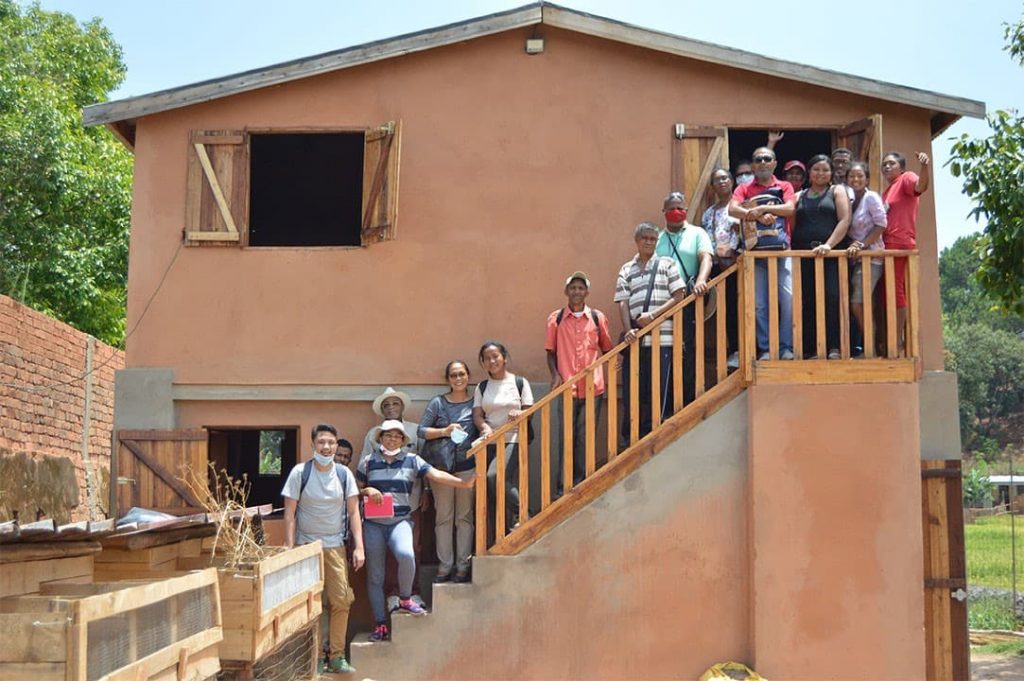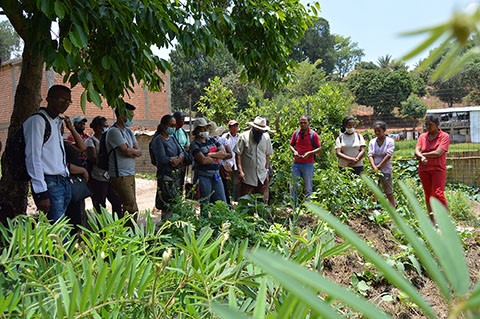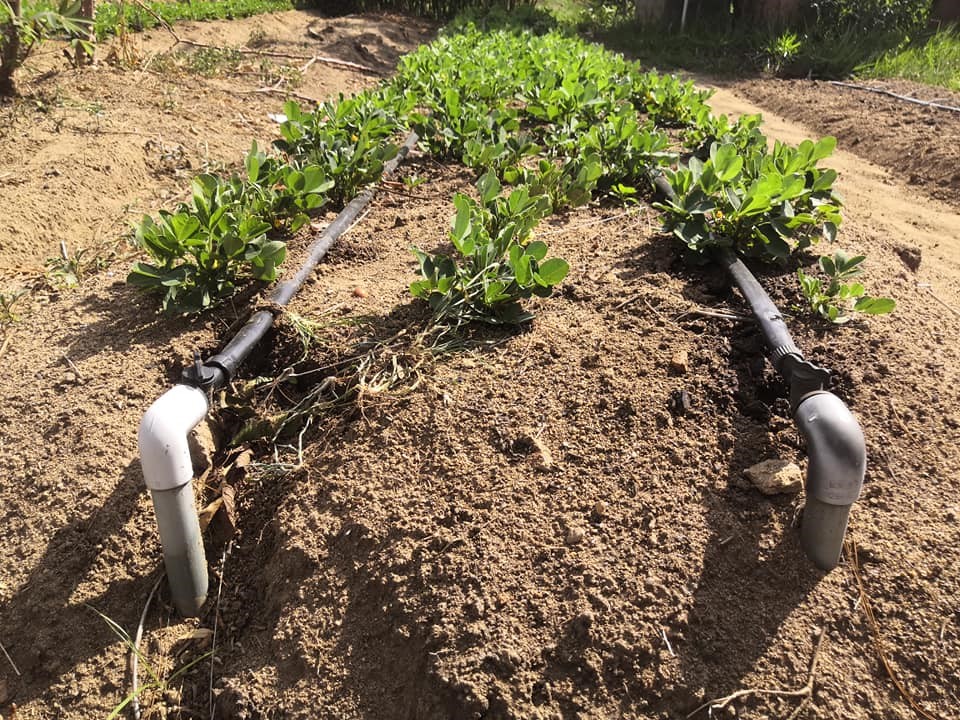In the framework of the CAADP XP4 project, funded by the European Union through IFAD, FCA Madagascar organized a day of exchange visits around the theme of Climate Smart Agriculture (CSA). In total, 16 participants (representatives of ministries, partner organizations and FCA Madagascar staff) were able to exchange, strengthen their understanding and network, and above all discover relevant CSA initiatives.

Thursday, December 03, 2020 at 7:00 a.m., the fifteen or so participants are beginning to come to our meeting point at the FCA Madagascar office. At 07:30 a.m., we definitely left to visit the first site of the day: “Andrin’ny Aina”.
“Andrin’ny Aina”, a place where we promote urban permaculture
“Andrin’ny Aina” is one of the sites of the Ecovillage Madagascar network. The “Andrin’ny Aina” site in particular stands out for its promotion of urban permaculture. During this visit, Mr. Rija, one of the persons in charge of the site, and Mr. Judicaël, a permaculture specialist, enlightened us better on the philosophy of permaculture. It is above all a practice that aims at food autonomy, that in the respect of nature and mankind. The ultimate goal is to reproduce the functioning of the forest where nature regulates itself to produce. However, in order to achieve this objective some agronomic techniques must be acquired and applied. But thanks to Mr. Rija, we were able to discover and better understand these so-called techniques. First, he explained to us the relevance of hillside culture, especially in urban areas. Indeed, this practice makes it possible to extend the cultivable space and thus make the best use of small urban spaces. Then he made us discover the reason why the association of cultures is inseparable from permaculture. For good reason, the practice of permaculture omits any use of chemical products (fertilizers, insecticides or herbicides). The combination of culture, once well mastered, allows the plants to protect themselves against insects and various diseases. Also, we learned the concept of aromatic spiral. This technique makes it possible to create micro-climates on a small surface. As a result, it is then possible to cultivate, in this case aromatic plants, plants with different needs. Finally, the site also uses lombri-composts. In addition to generating natural fertilizer, this makes it possible to treat locally produced waste. Nevertheless, the site managers warn us that permaculture is not only a set of techniques. It is above all a way of life and an everyday investment.

« Ezaka Maitso », a place where we learn rural autonomy
After a good snack and a deep discussion, we left “Andrin’ny Aina” to join the site “Ezaka Maitso”. The latter is part of the CEDAR initiative (Development Training Center for Rural Autonomy). They also promote permaculture and use the different techniques mentioned earlier. But their particularity is the promotion of autonomy at all levels. First of all, food autonomy. In 6 months, the site has harvested between 600 to 700 kg of production. At the same time, the site also produces its own fertilizer by composting the organic waste produced on site. To date, “Ezaka Maitso” has produced nearly 740 kg of compost. Then, energy autonomy. With its solar panels and water pump, the site is completely independent on energy issues. Finally, all the constructions within the site come from locally available materials. Constructions that have greatly fascinated visitors. On a final positive note, we also learned during this exchange visit that neighboring farmers are also beginning to adopt permaculture techniques through exchanges with the “Ezaka Maitso” center. Also, in this perspective of community exchange, through Miss Voaary, the socio-organizer of the site, the pupils of the public elementary school of the surroundings could receive sensitizing on the stakes of the climate-intelligent agriculture and permaculture.

The micro-irrigation system at “Patrakala”
After a delicious lunch at “Ezaka Maitso”, our small group set off for the third and last visit of the day, direction “Patrakala“. is a leisure center but also a private company manufacturing and selling micro-irrigation kits. According to Mrs. Nirina, owner of the property, the use of these micro-irrigation kits would allow water savings of 50 to 60%. Micro-irrigation can thus be a sustainable solution to cope with the growing drought in Africa as in the case of the South of Madagascar. However, during this visit, we discovered that the cost of investing in such kits is quite heavy and is beyond the reach of the vast majority of Malagasy households. One of the reasons for this high cost is the fact that micro-irrigation kits do not yet benefit from a customs tax exemption like other agricultural tools in Madagascar. Nevertheless, we hope that advocacy with the government could change the situation to make these kits more accessible.

5:00 p.m., it’s time to go home. It was a long marathon of visits but it was also a very enriching day during which we were able to share our experiences, perspectives and joy. It was also an opportunity to strengthen our respective networks and our partnership. Moreover, common project plans were already discussed during this day. We only hope that they will become tangible. Finally, if you want to see more pictures and more content, you can always follow our Facebook page https://web.facebook.com/fcamadagascar or visit our website http://fca-madagascar.org/.
